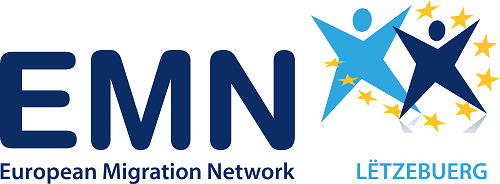This joint EMN-OECD inform presents an overview of policies and state-led practices designed to monitor the integration of third-country nationals and compares relevant national legislation in each EMN Member and Observer Country. Drawing on the contributions from 25 EMN Member and Observer Countries, this inform sheds light on the various dimensions of integration – from education and employment to social inclusion and civic participation.
By comparing relevant national legislation in each EMN Member and Observer Country, this inform highlights the challenges and good practices regarding integration monitoring, focusing on legally residing third-country nationals, including international protection beneficiaries, but excluding asylum seekers and those with rejected protection applications.
The EU is working to integrate a growing number of third-country nationals, who made up about 5.3% of the total population in 2022 with approximately 24 million third-country nationals residing in the EU. According to Eurostat, the number of immigrants from non-EU countries moving to the EU keeps increasing. This is why the integration of third-country nationals is a priority for both national governments and the EU as a whole.
Approximately half of EMN Member and Observer Countries have national integration monitoring policies in place, focusing on methods, indicators, and involvement of various stakeholders at national, regional, and local levels. Ministries overseeing immigration or social affairs commonly lead integration monitoring efforts, with statistical institutes often playing important roles in data generation and analysis.
The integration of third-country nationals is primarily monitored by focusing on key areas such as education, employment, and housing. While some countries gauge integration based on self-identification with national identity or levels of discrimination, others target specific vulnerable groups. Data collection methods vary, with administrative data being the primary source in most countries, supplemented by surveys.
Integration monitoring outcomes frequently influence policy changes, with reports guiding the development or revision of integration programs and strategies. For instance, in Sweden, integration monitoring is woven into the national budget process, while in Portugal, monitoring results inform policy evaluation and intervention strategies.
EMN Member and Observer Countries encounter challenges integrating administrative and survey data, which can lead to biases. Issues include incomplete foreign national registries, missing data due to late registrations, and complications from data protection laws. Language, cultural barriers, and mobility also affect survey responses. Proposed methodological enhancements, such as online surveys, also face cost and access hurdles.
Despite these challenges, several countries demonstrate good practices in integration monitoring, offering valuable insights and guidance for improving integration monitoring across EMN Member and Observer Countries. For instance, France has developed surveys to evaluate the integration pathways of newly arrived immigrants. These surveys delve into migration trajectories, French language proficiency, skill and education levels, integration into the labour market, and physical and mental health. In the Belgium-Flemish Community, public access to integration monitoring results is available through platforms that assess and track societal diversity. Policymakers can then implement targeted, evidence-based policies.
The joint EMN-OECD inform emphasises measures which enhance engagement with foreign-born populations for effective integration monitoring. The ‘one-stop shop’ model, offering in-person administrative services, proves beneficial for understanding migrants’ needs and integration progress, and is thus helpful to the monitoring process. Some EMN Member and Observer Countries extend monitoring to native-born descendants facing similar challenges. They advocate centralising monitoring results and promoting comparative approaches through public-access databases.
French translation of the Inform was kindly provided by EMN France.

